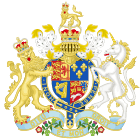Plantation Act 1740 facts for kids

|
|
| Long title | An Act for Naturalizing such foreign Protestants and others therein mentioned, as are settled or shall settle in any of His Majesty’s Colonies in America. |
|---|---|
| Citation | 13 Geo. 2 c 7 |
| Territorial extent | British America |
Quick facts for kids Dates |
|
| Commencement | 1 June 1740 |
| Other legislation | |
| Amended by | Extended by, 20 Geo. 2, c. 44, Sec. 1.), Aliens Act 1746 |
| Text of statute as originally enacted | |
The Plantation Act 1740 is also known as the Naturalization Act 1740. It was a law passed by the British Parliament in 1740. Its main goal was to make it easier for people from other countries, especially Protestants, to become citizens in Britain's American colonies. This law officially allowed any Protestant living in a British American colony for seven years to become a "natural-born subject" of the British Kingdom. This meant they would have the same rights as someone born in Britain. They just needed to declare their loyalty, confirm their Christian faith, and pay a small fee. This act made becoming a citizen much simpler and cheaper than other options at the time.
Contents
Why the Act Was Needed
The Plantation Act was created to help Britain's American colonies grow. Britain wanted more people to move to these colonies. Before this act, each colony had its own rules for who could become a citizen. These local laws often didn't give people rights outside that specific colony. This made things confusing and wasn't good for the overall British Empire. The new act aimed to create one clear way for people to become citizens across all the colonies.
Who Could Become a Citizen?
The law was mainly for Protestants. However, it also made special exceptions for certain groups.
- Quakers were allowed to affirm their loyalty instead of taking a traditional oath.
- Jewish people did not have to say "Upon the true faith of a Christian" when taking their oath.
This showed that the British government was willing to be flexible for some religious groups.
How the Act Worked
The Plantation Act made the process of becoming a citizen much clearer and easier.
- It gave colonial courts the power to handle citizenship requests.
- People who wanted to become citizens had to live in a colony for seven years.
- They also had to declare their loyalty to the British King and confirm their Christian faith (with exceptions for Quakers and Jews).
- A small payment of two shillings was required.
Reporting New Citizens
The law also required officials in each colony to send a list of new citizens to the Commissioners of Trade and Plantations every year. This was to keep track of who was becoming a British subject in the colonies. However, not all colonies followed this rule perfectly. Only six out of thirteen American colonies regularly sent in these lists.
Impact and Legacy
For almost 30 years, the Plantation Act helped define British North America as a place where people could find new opportunities. It encouraged many foreigners to move to the colonies and become citizens.
Changes Over Time
Later, Britain started to change its policies regarding immigration to the colonies.
- By 1773, Britain completely stopped allowing colonies to naturalize foreigners.
- A ban on new royal land grants was also put in place.
Influence on the United States
Even though the Plantation Act was a British law, it had a big impact on the future United States. When the American colonies declared independence, they listed the ban on naturalizing foreigners as one of their complaints against the British King in the Declaration of Independence. Interestingly, the Plantation Act also served as a model for the first naturalization law in the United States, the Naturalization Act of 1790. Many of its rules, like the time needed to live in the country and the process of swearing an oath before a judge, were based on the British act.
 | Jessica Watkins |
 | Robert Henry Lawrence Jr. |
 | Mae Jemison |
 | Sian Proctor |
 | Guion Bluford |

